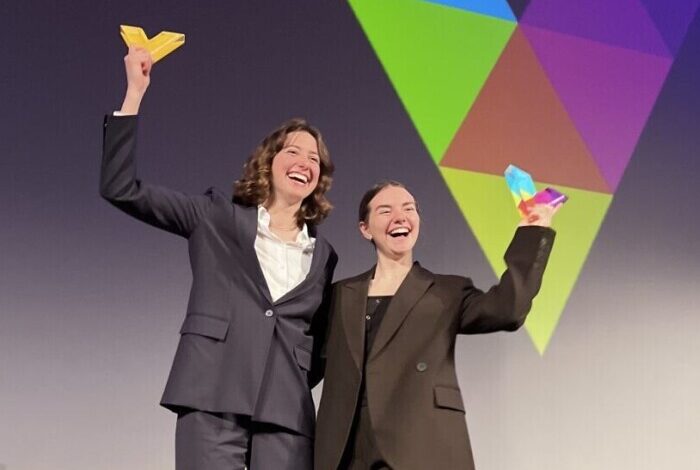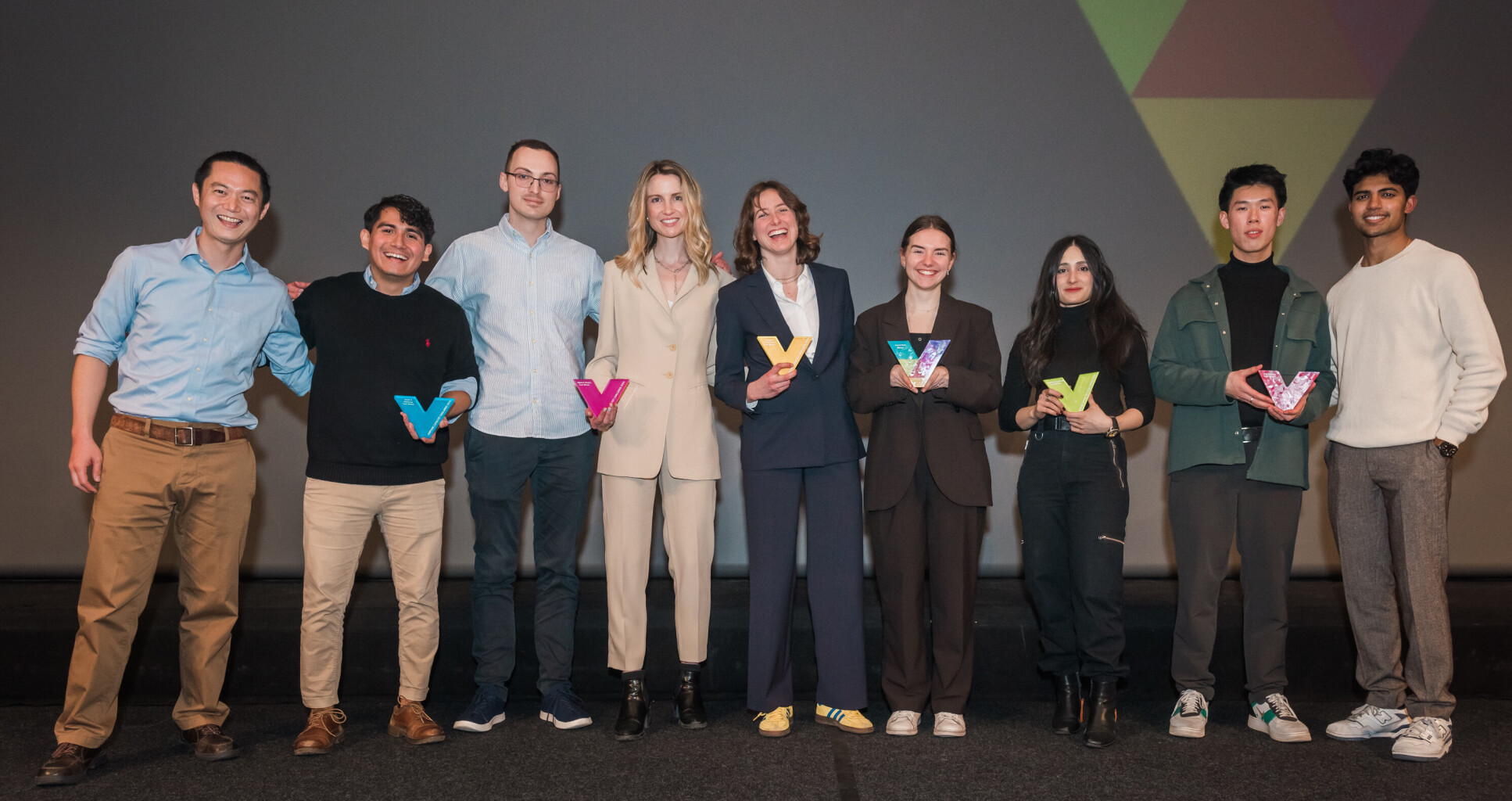‘Living paint’ startup wins Imperial’s top entrepreneurship prize | Imperial News


A startup developing a ‘living paint’ that turns buildings into CO2-absorbing structures has won Imperial’s flagship entrepreneurial competition.
Cyanoskin took the top prize in the Venture Catalyst Challenge 2024 for their innovative technology which aims to provide an efficient and cost-effective tool for capturing CO2. The startup was founded by Imperial alumnus Antoinette Nothomb and Royal College of Art alumnus Emma Money.
The team took home a total prize of £30,000 after competing against four other startups in the VCC Grand Final.
“Throughout the program, we experienced a large sense of support from the VCC and its network. At any point, and any time when help was needed, it was quickly provided by the VCC through their incredible network.” Antoinette Nothomb Co-founder of Cyanoskin
This year’s VCC took 25 teams through a 3-month programme of 1-2-1 coaching, meetings with experts, workshops and pitch training. The VCC’s total £100,000 prize fund is the biggest prize fund of any UK university entrepreneurship competition.
The competition has a strong record of supporting innovative businesses at an early stage, with previous participants including Notpla (winners of the Earthshot Prize 2022), Breathe Battery (who are now partnering with Volvo), and FA Bio (who have raised more than £5m in investment).
Over the past 11 years, the VCC has:
- Supported 275 teams and given away £580,000 in prize money.
- Helped teams who have gone on to raise £210 million in external funding and created more than 750 jobs.
This year’s finalists were split into five tracks – AI & Robotics, Creative & Consumer, Digital & Finance, Energy & Environment, and Health & Wellbeing – with each track winner being awarded £10,000 before competing in the Grand Final for an additional £20,000 Grand Prize.
This year’s judges were:
‘Living paint’ to tackle the climate crisis
In their pitch, Cyanoskin argued that sustainability managers across the world are over-budget and struggling to reach their net zero targets. They need solutions which are cost-effective and easy to implement.
The team’s solution is an innovative ‘living paint’ which turns buildings into carbon dioxide-absorbing structures, with the aim of reducing emissions and pollution in urban areas. Once applied, the photosynthetic paint grows and thickens, allowing it to capture CO2 in a similar way to algae.
Building owners will also be provided with an app for live updates on how much carbon their painted walls are absorbing.

Antoinette Nothomb, co-founder of Cyanoskin, said: “Emma and I are absolutely thrilled about winning the VCC final. However, what struck us most profoundly was that winning wasn’t merely about the financial reward.
“Throughout the program, we experienced a large sense of support from the VCC and its network. At any point, and any time when help was needed, it was quickly provided by the VCC through their incredible network. While the financial prize is certainly appreciated, what truly matters is the trust placed upon our company by VCC and Imperial College London.
“We feel well-equipped to continue this journey. Now if we do talk about the financial aspect, yes, we are indeed ecstatic. This funding enables us to further our research at the Advanced Hackspace and prepare for the launch of our very first pilot in September 2024.”
Prize winners
There were also four additional awards presented during the Grand Final – two Moonshot Prizes for teams who are pushing innovation to the limit, and two Social Impact Prizes for teams whose work is focused on having a positive impact on society.
BrainMod were awarded the top Moonshot Prize of £10,000 for their work on developing wearable neurotechnology and AI therapeutics to optimise cognitive performance.
The second Moonshot Prize of £5,000 went to Polaron, who are working to accelerate the design of advanced materials with generative AI.
Pyri were awarded the top Social Impact Prize of £10,000 for developing an innovative wildfire detection system that uses biocompatible materials to offer extensive and low-cost coverage.
The second Social Impact Prize of £5,000 went to Tulibot, who are working to empower inclusive communication with real-time subtitling smart glasses for people who are deaf.
This year’s other four finalists were also awarded prizes as the winners of their individual tracks. Cyanoskin won the competition’s Energy & Environment track.
The other track winners were:
AI & Robotics – AminoAnalytica are developing virtual screening software that predicts protein properties to accelerate drug discovery, acting as a ‘crystal ball’ for pharma companies.
Creative & Consumer – Vox Aeris are developing alternative air purification methods to bring more efficient, sustainable, and adoptable air quality solutions into our daily lives.
Digital & Finance – SurgeryAI are developing an AI tool that uses surgical data to accurately predict procedure times and produce more efficient schedules for operating rooms, eliminating avoidable delays caused by scheduling gaps and underutilised rooms.
Health & Wellbeing – Neubond are developing wearable devices for stroke mobility rehabilitation that autonomously deliver therapy during daily activities, allowing for use discreetly at anytime and anywhere.
—
More information on this year’s Venture Catalyst Challenge can be found on the Imperial Enterprise Lab website.
If you would like to know more about working with the Enteprise Lab or sponsoring our programmes, please get in touch with Sarah Ranchev-Hale, Head of Imperial Enterprise Lab (s.ranchev-hale@imperial.ac.uk).



